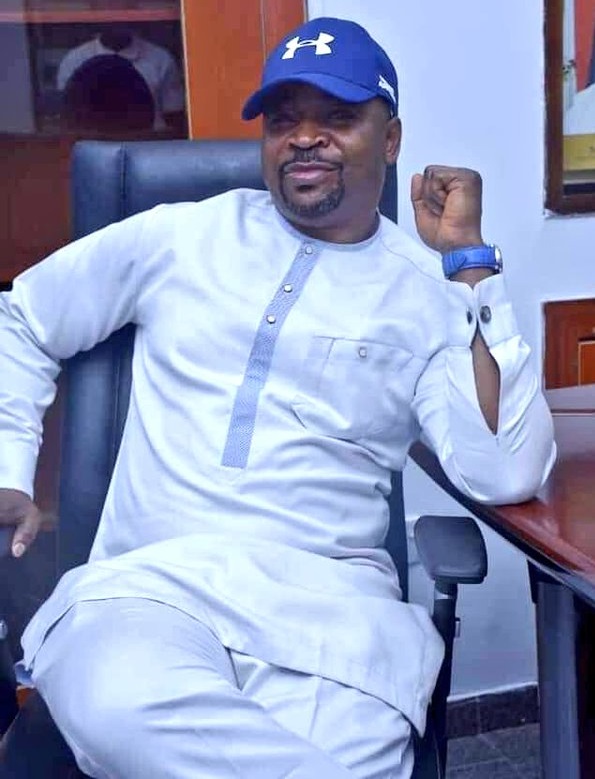YOKOHAMA, Japan – August 25, 2025 – The African Development Bank (AfDB) and the Japan International Cooperation Agency (JICA) have signed a landmark Memorandum of Understanding (MoU) to launch the sixth phase of the Enhanced Private Sector Assistance initiative (EPSA6), a $5.5 billion program aimed at fostering private sector-driven growth in Africa from 2026 to 2028. The agreement, formalized during the Ninth Tokyo International Conference on African Development (TICAD9) in Yokohama, Japan, marks a significant escalation in funding compared to the $5 billion allocated under EPSA5. Since its inception in 2005, the EPSA initiative has been a cornerstone of Japan-Africa collaboration, supporting sectors such as energy, transport connectivity, health, agriculture, and nutrition. EPSA6 introduces resilience as a new priority, with a focus on addressing climate change and economic shocks. This report provides a comprehensive analysis of the EPSA6 initiative, its historical context, the TICAD9 framework, and its implications for Africa’s development and economic resilience.
The EPSA6 Initiative: A Bold Step for Africa’s Development
The signing of the MoU for EPSA6 at TICAD9 represents a pivotal moment in the longstanding partnership between the AfDB and JICA, aimed at unlocking Africa’s economic potential through private sector-led growth. The $5.5 billion commitment for 2026–2028, an increase of $500 million over EPSA5, underscores the growing ambition of both institutions to address Africa’s development challenges. The EPSA initiative, launched in 2005, has been instrumental in mobilizing resources for critical sectors, including energy, transport, health, agriculture, and nutrition, while fostering an enabling environment for private investment.
Dr. Akihiko Tanaka, President of JICA, highlighted the initiative’s transformative impact during the signing ceremony. “Co-financing under previous EPSA phases has already attracted around 12 billion dollars,” he said. “The 5.5 billion dollar target for EPSA6 is more than five times the initial commitment under EPSA1.” Tanaka’s remarks reflect the exponential growth of the EPSA program, which has evolved from a modest initiative to a cornerstone of Japan’s development cooperation with Africa.
EPSA6 introduces resilience as a key focus area, responding to the continent’s vulnerability to climate change, economic shocks, and geopolitical disruptions. This emphasis aligns with global development priorities, including the United Nations Sustainable Development Goals (SDGs) and the Paris Agreement, which call for sustainable and resilient economic systems. By prioritizing resilience, EPSA6 aims to equip African nations to manage debt burdens, adapt to environmental challenges, and foster sustainable growth.
AfDB Vice President Kevin Kariuki described Japan as one of the Bank’s most significant allies, emphasizing the strategic importance of the EPSA partnership. “I applaud Japan and JICA for their dedication to Africa’s development,” Kariuki said. “I am confident we will consolidate the successes of this collaboration in a mutually beneficial manner.” He noted that EPSA5, which ran from 2023 to 2025, secured $4 billion in joint co-financing, with projects valued at $1.6 billion expected to reach advancedross advanced implementation stages by the end of 2025.
Historical Context: The Evolution of EPSA
The Enhanced Private Sector Assistance (EPSA) initiative, launched in 2005, is the AfDB’s largest and longest-running bilateral partnership with any development finance institution. Over the past two decades, EPSA has mobilized significant resources to support private sector development in Africa, focusing on sectors critical to economic growth. Previous phases have funded projects such as renewable energy plants, road and rail infrastructure, healthcare facilities, and agricultural value chains, contributing to job creation, energy access, and food security.
EPSA1, launched in 2005, had a modest commitment of $1 billion, which has grown significantly over time. By EPSA5 (2023–2025), the initiative had secured $4 billion in co-financing, demonstrating its increasing scale and impact. The $12 billion in total financing attracted under previous phases has supported transformative projects across the continent, from solar power plants in Senegal to port expansions in Kenya. These projects have not only driven economic growth but also enhanced Africa’s integration into global markets.
EPSA6’s $5.5 billion commitment reflects the program’s evolution and the growing confidence of both the AfDB and JICA in its ability to deliver results. The introduction of resilience as a priority area responds to emerging challenges, such as climate-induced disasters and economic volatility, which have disproportionately affected African nations. By focusing on resilience, EPSA6 aims to build adaptive capacity, ensuring that development gains are sustainable in the face of external shocks.
TICAD9: A Platform for Japan-Africa Collaboration
The signing of the EPSA6 MoU took place during the Ninth Tokyo International Conference on African Development (TICAD9), held in Yokohama, Japan, from August 24–26, 2025. TICAD, initiated in 1993, is a Japan-led platform for fostering dialogue and cooperation between African nations and Japan. The conference brings together African leaders, Japanese policymakers, and international partners to discuss development priorities, including infrastructure, human capital, and sustainable growth.
TICAD9 focused on “Africa’s Ownership and Co-Creation for a Resilient Future,” emphasizing resilience in the face of climate change, pandemics, and economic challenges. The EPSA6 MoU aligns with this theme, positioning private sector investment as a key driver of resilience. Japan’s Finance Minister, Mr. Katsunobu Kato, highlighted the initiative’s role in supporting African nations to manage debt burdens while creating an enabling environment for investment. “Africa has tremendous opportunities for significant market expansion,” Kato remarked, underscoring the continent’s growth potential.
Dr. Tanaka praised outgoing AfDB President Dr. Akinwumi Adesina for his leadership in expanding the EPSA program. “This reflects the growing strength of our partnership and the increasing importance of our joint effort,” he said. Adesina’s tenure, marked by bold initiatives like the Africa Investment Forum, has strengthened the AfDB’s role as a catalyst for private sector development, making EPSA6 a fitting legacy for his leadership.
Key Sectors and Resilience Focus
EPSA6 will prioritize five key sectors: energy, transport connectivity, health, agriculture and nutrition, and resilience. These sectors are critical to addressing Africa’s development challenges and unlocking its economic potential:
Energy: Investments in renewable energy, such as solar and wind, will enhance energy access, supporting industrialization and reducing reliance on fossil fuels. Projects like the 50 MW solar plant in Burkina Faso under EPSA5 demonstrate the impact of such investments.
Transport Connectivity: Infrastructure projects, including roads, railways, and ports, will improve regional integration and access to markets, fostering trade and economic growth. The Mombasa-Nairobi railway, co-financed under EPSA, is a notable example.
Health: Investments in healthcare facilities, medical equipment, and training will strengthen health systems, addressing challenges like maternal mortality and infectious diseases. EPSA5 supported hospital upgrades in Côte d’Ivoire, improving service delivery.
Agriculture and Nutrition: Initiatives to enhance agricultural productivity and food security will support rural communities, where over 60% of Africans live. Irrigation projects in Ethiopia under EPSA5 boosted crop yields and farmer incomes.
Resilience: The new focus on resilience will support climate adaptation measures, such as flood-resistant infrastructure, and economic diversification to mitigate shocks. This includes funding for climate-smart agriculture and disaster preparedness systems.
The resilience focus is particularly timely, given Africa’s vulnerability to climate change. The continent faces increasing droughts, floods, and heatwaves, which threaten agriculture, water access, and livelihoods. EPSA6’s emphasis on climate resilience will support projects like mangrove restoration in Mozambique and early warning systems in the Sahel, ensuring sustainable development outcomes.
Economic and Social Context
The EPSA6 initiative must be understood within Africa’s broader economic and social context, as well as Nigeria’s specific challenges. Africa’s population, projected to reach 2.5 billion by 2050, presents both opportunities and pressures. The continent’s GDP growth averaged 3.5% annually from 2015 to 2023, but challenges like debt distress, inflation, and climate impacts persist. The International Monetary Fund (IMF) estimates that 33 African countries are at high risk of debt distress, necessitating innovative financing models like EPSA.
In Nigeria, the economic context is particularly challenging. The National Bureau of Statistics (NBS) reported a headline inflation rate of 21.88% in July 2025, driven by a 22.74% food inflation rate, making basic necessities unaffordable for many. The naira’s 41.4% depreciation in 2024 has increased import costs, while the Central Bank of Nigeria’s 26.75% Monetary Policy Rate has raised borrowing costs. The World Bank’s estimate that 38.9% of Nigerians live below the poverty line underscores the urgency of initiatives like EPSA6, which can drive job creation and economic growth.
Socially, Nigeria faces significant challenges, including a 30% out-of-school rate among children (UNICEF, 2023) and a maternal mortality rate of 576 per 100,000 live births. These issues highlight the need for investments in education and health, which EPSA6 can support through its health and resilience priorities. Nigeria’s participation in TICAD9 and EPSA6 positions it to benefit from projects that address these challenges, fostering inclusive growth.
Stakeholder Reactions
The EPSA6 MoU elicited widespread praise from stakeholders. African Union Commissioner for Economic Development, Albert Muchanga, described it as “a transformative step for Africa’s private sector.” He noted, “EPSA6’s focus on resilience aligns with our Agenda 2063 goals, ensuring sustainable development.” Nigerian Finance Minister Wale Edun welcomed the initiative, stating, “This partnership will unlock investment opportunities in Nigeria’s energy and agriculture sectors.”
Development experts praised the emphasis on climate resilience. “Africa is on the frontline of climate change,” said Dr. Amina Mohammed, a Nairobi-based economist. “EPSA6’s resilience focus is a game-changer for vulnerable communities.” However, some stakeholders called for greater transparency in project selection. “We need clear criteria to ensure funds reach the most impactful projects,” said Kwame Asante, a Ghanaian civil society leader.
Private sector representatives expressed optimism about EPSA6’s potential. “The $5.5 billion commitment signals confidence in Africa’s markets,” said Aliko Dangote, CEO of Dangote Group. “This will drive growth in key sectors like manufacturing and agriculture.”
Implications for Africa and Nigeria
EPSA6 has far-reaching implications for Africa and Nigeria. For Africa, the initiative will mobilize capital for critical infrastructure, create jobs, and enhance resilience, supporting the continent’s ambition to become a global economic powerhouse. The $12 billion attracted under previous phases demonstrates EPSA’s potential to catalyze growth, with EPSA6 poised to amplify this impact.
In Nigeria, EPSA6 could fund projects like gas-to-power plants, rural electrification, and agro-processing hubs, addressing energy shortages (Nigeria’s generation capacity is below 5,000 MW for 220 million people) and boosting agricultural productivity. The resilience focus could support flood-resistant infrastructure in northern Nigeria, where climate impacts are severe.
The initiative also strengthens Japan-Africa ties, positioning Nigeria as a key beneficiary of TICAD’s development agenda. By aligning with global trends toward sustainable investment, EPSA6 could attract additional foreign direct investment (FDI), which fell to $3.3 billion in Nigeria in 2024, per the United Nations Conference on Trade and Development (UNCTAD).
Challenges and Opportunities
EPSA6 faces several challenges:
Debt Sustainability: With 33 African countries at risk of debt distress, ensuring projects are financially viable is critical.
Implementation Capacity: Weak institutional frameworks in some countries could delay project execution, requiring capacity-building support.
Climate Risks: Increasing climate events necessitate robust adaptation measures to protect investments.
Equitable Distribution: Ensuring funds benefit rural and marginalized communities is essential for inclusive growth.
Opportunities include job creation (EPSA5 created over 50,000 jobs), enhanced energy access, and increased regional trade through infrastructure like the Lagos-Abidjan corridor. The resilience focus could position Africa as a leader in climate adaptation, attracting green finance.
Policy Recommendations
To maximize EPSA6’s impact, the following recommendations are proposed:
Strengthen Project Oversight: Establish transparent mechanisms to monitor project implementation and ensure accountability.
Prioritize Resilience: Allocate significant funds to climate adaptation and economic diversification projects.
Enhance Local Capacity: Support training programs to build local expertise for project execution.
Promote Inclusivity: Ensure projects target underserved regions and populations, particularly women and youth.
Leverage Technology: Use digital tools to enhance project efficiency and transparency.
Conclusion
The signing of the EPSA6 MoU between the AfDB and JICA at TICAD9 marks a transformative milestone for Africa’s development, mobilizing $5.5 billion to drive private sector growth and resilience from 2026 to 2028. With a focus on energy, transport, health, agriculture, and resilience, EPSA6 addresses critical challenges like climate change and economic shocks, building on the success of previous phases that attracted $12 billion. For Nigeria, facing 21.88% inflation and widespread poverty, EPSA6 offers opportunities to boost energy access, create jobs, and enhance resilience. By addressing implementation challenges and prioritizing inclusivity, the initiative can unlock Africa’s economic potential, fostering sustainable growth and regional integration.






